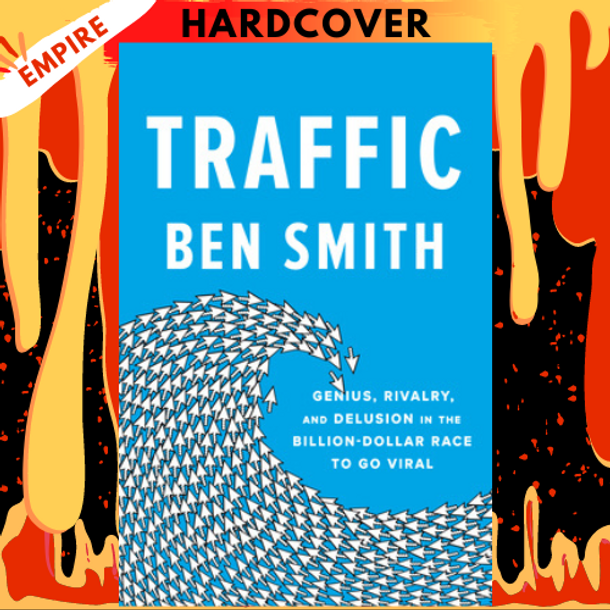Description
The origin story of the Age of Disinformation: the candid inside tale of two online media rivals, Jonah Peretti of HuffPost and BuzzFeed and Nick Denton of Gawker Media, whose delirious pursuit of attention at scale helped release the dark forces that would overtake the internet and American society.
If attention is the new oil, Ben Smith’s Traffic is the story of the time between the first gusher and the impact of climate change. The curtain opens in Soho in the early 2000s, after the first dotcom crash but before Google, Apple, and Facebook exploded, when it seemed that New York City rather than Silicon Valley might become tech’s center of gravity. There, within a few square blocks, Nick Denton’s merry band of nihilists at his growing Gawker empire and Jonah Peretti’s sunnier crew at HuffPost and BuzzFeed were building the foundations of viral internet media. It was tech’s age of innocence: the old establishment might have been discredited by the Iraq War, but digital news would facilitate the spread of truth. After all, didn’t progressive activists online get Barack Obama elected?
Ben Smith, who would go on to earn a controversial reputation as BuzzFeed’s editor-in-chief, was there to see it, and he chronicles it all with marvelous lucidity scored with dark wit, sparing no one—and certainly not himself. Smith tells a nuanced story: yes, Denton’s ideology of radical transparency was problematic, but at least he had an ideology. Jonah Peretti survived long after Denton’s Gawker perished because his focus on clicks was relentlessly content-agnostic. But unintended consequences began to snowball.
Traffic explores one of the great ironies of our time: the internet, which was going to help the left remake the world in its image, has become the motive force of right populism. People like Steve Bannon and Andrew Breitbart and Gavin McInnes and Chris Poole, the creator of 4chan, all seemed like minor characters in the narrative in which Nick and Jonah and crew were the stars. By 2020, any reasonable observer might wonder if the opposite wasn’t the case. To understand how we got here, Traffic is essential and enthralling reading.
Number of Pages: 352
Dimensions: 165 x 247 x 33mm
If attention is the new oil, Ben Smith’s Traffic is the story of the time between the first gusher and the impact of climate change. The curtain opens in Soho in the early 2000s, after the first dotcom crash but before Google, Apple, and Facebook exploded, when it seemed that New York City rather than Silicon Valley might become tech’s center of gravity. There, within a few square blocks, Nick Denton’s merry band of nihilists at his growing Gawker empire and Jonah Peretti’s sunnier crew at HuffPost and BuzzFeed were building the foundations of viral internet media. It was tech’s age of innocence: the old establishment might have been discredited by the Iraq War, but digital news would facilitate the spread of truth. After all, didn’t progressive activists online get Barack Obama elected?
Ben Smith, who would go on to earn a controversial reputation as BuzzFeed’s editor-in-chief, was there to see it, and he chronicles it all with marvelous lucidity scored with dark wit, sparing no one—and certainly not himself. Smith tells a nuanced story: yes, Denton’s ideology of radical transparency was problematic, but at least he had an ideology. Jonah Peretti survived long after Denton’s Gawker perished because his focus on clicks was relentlessly content-agnostic. But unintended consequences began to snowball.
Traffic explores one of the great ironies of our time: the internet, which was going to help the left remake the world in its image, has become the motive force of right populism. People like Steve Bannon and Andrew Breitbart and Gavin McInnes and Chris Poole, the creator of 4chan, all seemed like minor characters in the narrative in which Nick and Jonah and crew were the stars. By 2020, any reasonable observer might wonder if the opposite wasn’t the case. To understand how we got here, Traffic is essential and enthralling reading.
Number of Pages: 352
Dimensions: 165 x 247 x 33mm






